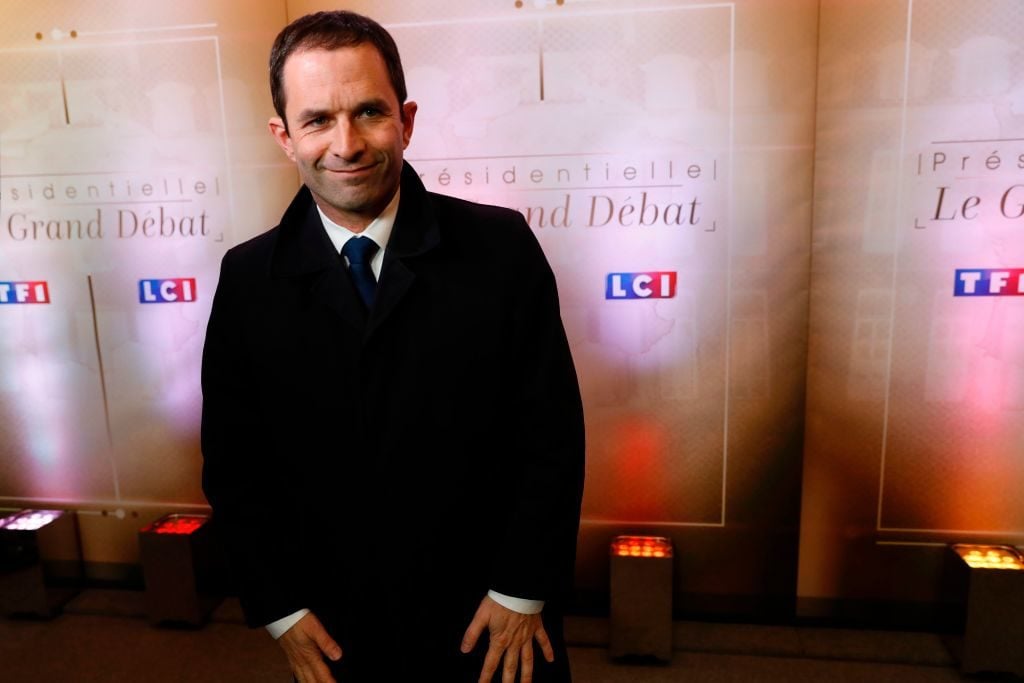Politics
On the Eve of French Elections, Here’s Where the Presidential Candidates Stand on the Arts
Stark differences on issues of budget, arts funding, education—and what French art really means.

Stark differences on issues of budget, arts funding, education—and what French art really means.

Jake Cigainero

PARIS — On Sunday, French voters will send two presidential hopefuls to the second round of elections in a campaign that has been fraught with twists and turns of scandal, investigations and last-minute surges in the polls, all in the shadow of terrorism. Polls project far-right National Front leader Marine Le Pen and political newcomer Emmanuel Macron, a centrist, will reach the head-to-head match.
In total, there are 11 candidates vying for the French presidency, but only four leading contenders, plus establishment party Socialist Benoit Hamon (who has been left far behind in the polls). Here are where the candidates stand on the arts.
Preservation of the Past or Investment in the Future?
The candidates’ arts programs are caught somewhere between two poles: preservation of the past and investment in the future. Generally, right-wing candidates like Le Pen and François Fillon of Les Republicains focus more on France’s patrimoine, or traditional cultural heritage, including existing monuments and property. The left, which includes Communist-linked Jean-Luc Mélenchon and Socialist Benoit Hamon, emphasizes support for living artists and the creation of new art.

Benoit Hamon arrives for a debate in Aubervilliers, outside Paris. Photo courtesy PATRICK KOVARIK/AFP/Getty Images.
Public Funding
France’s national budget for culture this year is €2.7 billion (a little over $2.5 billion), which is about 1.1 percent of the overall budget and .65 percent of its GDP. Hamon and far-left candidate Jean-Luc Mélenchon both want to increase arts funding to 1 percent of GDP. Macron, in the middle, wants to maintain the budget as it is and review all public culture policies for efficiency.
Le Pen has previously proposed cutting culture budgets but wants to increase conservation funding by up to 25 percent, while Fillon has promised to earmark €400 million for restoration and preservation.
The stakes are high: museums, cultural institutions, and arts programs in France rely heavily on public funding. To justify slashing arts budgets, Fillon wants to promote American-style models that include donations, sponsorships, private-public funding and participatory financing of cultural institutions. Le Pen wants to launch a dedicated crowdfunding platform to raise money for heritage preservation projects.
One idea the top candidates can agree on is the importance of music. All have proposed launching collective music education programs in public schools.
Access and Education
Efforts to expand young people’s access to culture is the least polemical part of the candidates’ platforms. Hamon wants to create a cultural “passport” for students ages 12 to 18 and has given his arts program the slogan, “For culture everywhere, by all, for all.” Macron, who has said that “culture is essential for the future of our country,” wants to give students under 18 a €500 voucher to pay for cultural activities of their choice. Far-left candidate Mélenchon takes a more universal approach to arts education and wants to expand the measures to also benefit adults.
Le Pen’s culture proposal, meanwhile, includes a national plan to create vocational arts schools at the high school and university levels. Both she and Fillon propose opening artist incubators throughout the country.
Cultural Exchange
The next president’s arts policy must also address cultural exchange and determine just how open France should be to external influence. Many of Le Pen’s policies are designed to keep out foreigners. Her proposal to restrict the teaching language in universities to French would prevent many international students from studying in France, including foreign art students.
In a recent meeting with the Anglo-American Press Association of Paris, Serge Lasvignes, president of the Pompidou Center, was asked what he would do if Le Pen, whom many perceive as an enemy of liberal French culture, wins the election.
“Obviously it would be upsetting as director of a public establishment to find myself working with them. Unless it was impossible, I would stay in a spirit of resistance,” he said. “Culture is crucial for the opening of the mind to things that are different, strange, foreign … so we would have to be in opposition to any government whose program was about closing the mind or about cultural conservatism. In that case, the Pompidou Centre and French culture would have to rediscover its militant role.”